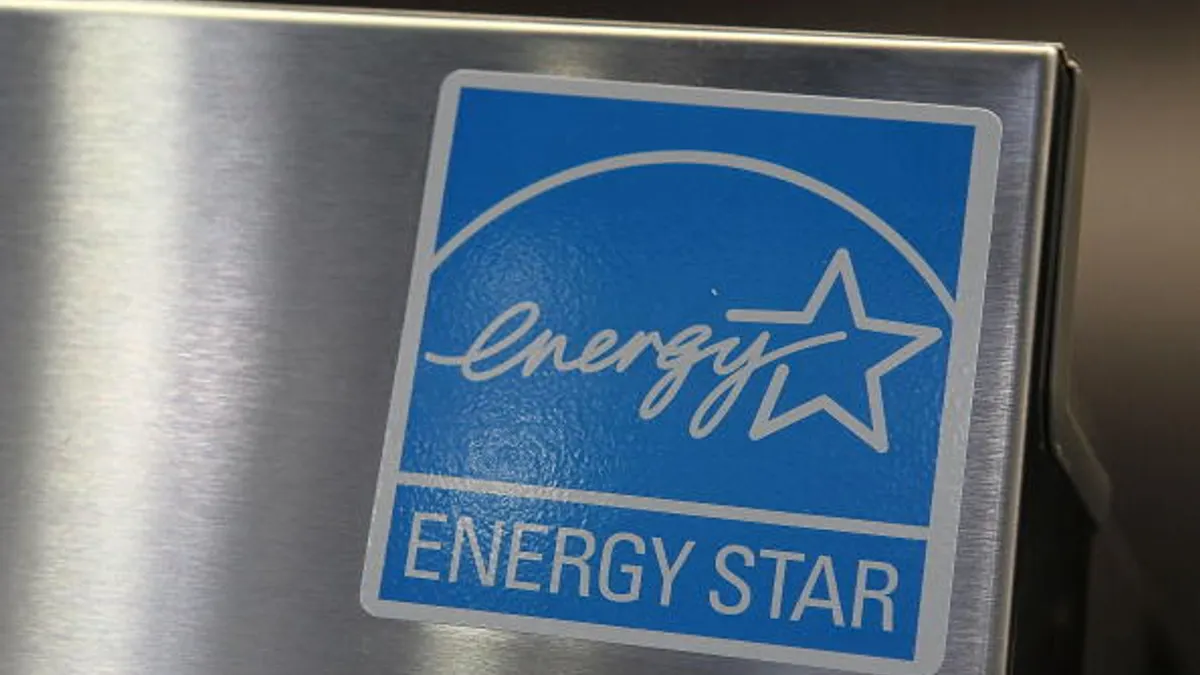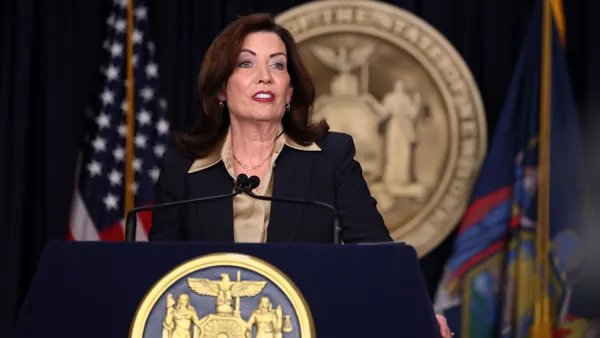Dive Brief:
- If a utility were sued over its carbon emissions and lost, monetary responsibility would exceed $1 billion for the largest power companies, according to new research from Michigan Technological University, Midwest Energy News reports.
- Based on a cost of $80/ton of carbon emissions, the research showed Georgia Power Co.'s Scherer Power Plant, the largest emitter of greenhouse gas in 2012, represents a $1.7 billion liability for the company.
- Critics of the study, however, point to several court precedents showing the difficulty in winning monetary awards over emissions, with legislative or regulatory challenges more common and successful.
Dive Insight:
Placing a cost on carbon could have significant impacts for utility shareholders and open up power companies to new litigation risks, according to a new paper published in the journal Renewable and Sustainable Energy Reviews. But that's only if a court were to allow a lawsuit focused on a company's emissions to succeed, a point which critics of the research contend is not so certain.
The paper was authored by Michigan Tech professor Joshua Pearce, who told Midwest Energy News "One of the questions I was really curious about is: Even if all climate change related damages were assigned to emitters would it even matter financially to the companies? ... As it turns out – the potential liabilities are substantial and should not be ignored by investors."
Using seven different methods of analysis and an $80/ton price on greenhouse gas emissions, the paper quantified the potential liabilities of the top 10 emitting power plants in the United States. The Scherer plant, with almost 22 million tons of emissions in 2012, topped that list. It was followed by Alabama Power's James H Miller Jr. plant, with a potential liability of $1.5 billion, and American Electric Power's Rockport station with a potential $1.4 billion liability.
But would a court place liability on a utility? Critics of the research say probably not. At least four legal precedents would seem to limit these lawsuits and Michael Gerrard, director of the Sabin Center for Climate Change Law at Columbia Law School, told Midwest Energy News that "shielding themselves from potential money damages from greenhouse gas emissions is a much lower threat” for utilities than it was a decade ago.
The paper is titled "A Review of Greenhouse Gas Emission Liabilities as the Value of Renewable Energy for Mitigating Lawsuits for Climate Change Related Damages" and can be downloaded
here.













